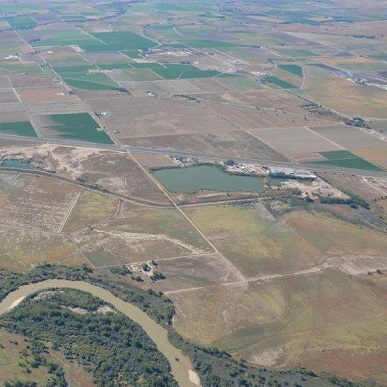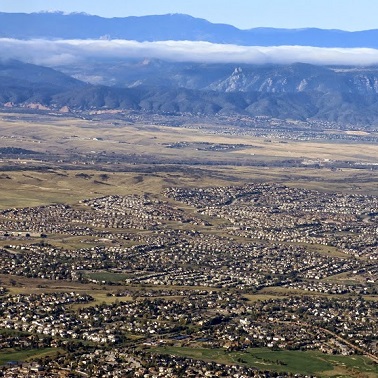With rivers tapped out, Western cities turn to farmers' water rights
This is an adaptation of a blog post originally published on EDF’s Growing Returns.
I’ve been a student of water use, storage and transportation for decades, but it wasn’t until I saw the effects of Colorado’s urban growth from a small plane, 1,000 feet above ground, that it really hit me: the West is getting a new look.
As we continue to push Western water supplies beyond their limits, growing cities are gradually idling farmland to meet their own water needs. It’s leaving a patchwork of permanently fallowed fields that can stretch for miles in either direction.

I had the extraordinary opportunity to fly with a Lighthawk volunteer pilot a few weeks ago to see the changing face of Colorado first-hand, and specifically how urban growth is affecting the state’s working lands and rivers.
The footprint of idled farmland on the state’s eastern plains painted a very clear picture.
Why cities “buy and dry”
Across the American West, water supplies are being pushed to the limit. So when expanding cities seek to boost water supplies, they can no longer simply take more water from rivers, which are already fully tapped.
Hence, the practice of “buy and dry,” a purchase of farmers’ water rights, which results in the permanently fallowed farmland I saw in eastern Colorado.
With buy and dry, the land loses value beyond its agricultural outputs. Neighboring farms can be affected by changes to ditch operations, invasive weeds, and even by the loss of farm services as the loss of farmland adds up.
Also lost are valuable ecosystem services that benefit wildlife – not to mention the culture and traditions of farmers and cattlemen.

Time to save water, farms and the local economy
Fortunately, there are alternatives to this practice – solutions that can improve both agricultural and environmental sustainability.
Ambitious urban water conservation programs and more investment in agricultural efficiency and infrastructure to reduce water use can have a huge impact. Water banks and markets that pay irrigators a fair price, while avoiding permanent fallowing practices, should also be part of a portfolio of solutions to Western water woes.
Today, the risks are impossible to ignore. We must take steps to ensure the long-term viability of Colorado’s environment and economy.











